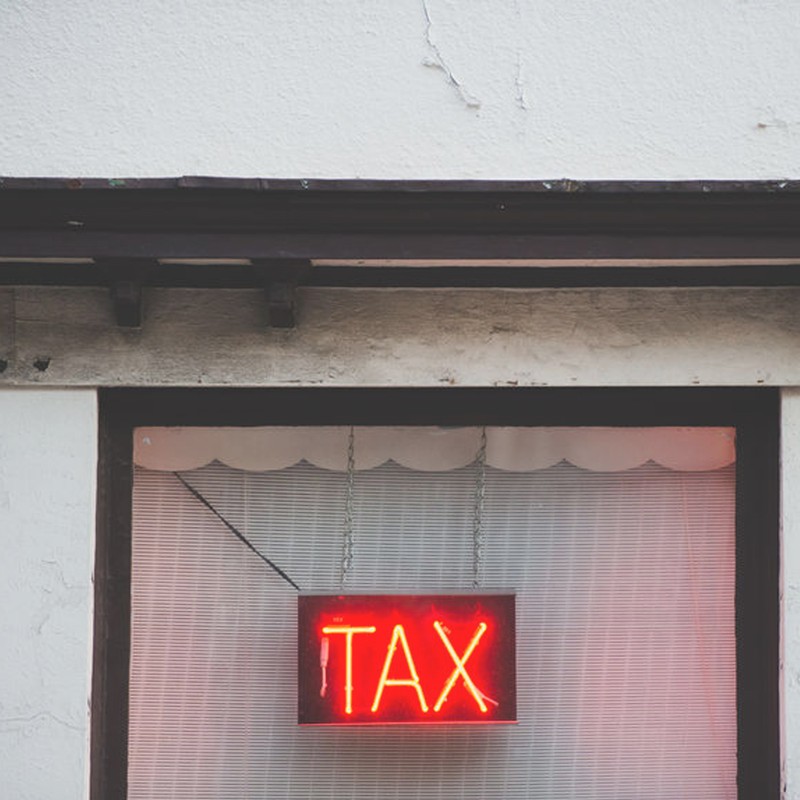The 5 Main Types Of Tax
Experts, Lesley Stalker, Head of Tax at RJP LLP and Kristian Lee from Crowther Chartered Accountants, give us a cheat sheet to understanding taxes.
1. INCOME TAX
THE BASICS
Who Needs To Pay
If you earn money for work or services provided as an employee or through self-employment and the amount earned is above a minimum level – known as the personal allowance – you will need to pay income tax.
Your Personal Allowance
You are entitled to an amount of personal allowance before tax is payable – unless you earn over £125,000. In the 2019/2020 tax year if you earn:
- Under £100,000 – the personal allowance limit stands at £12,500
- Between £100,000 to £125,000 – the amount of personal allowance you receive decreases by £1 for every £2 you earn above £100,000, until it reaches £0, when you get to £125,000.
- Over £125,000 – you must pay tax on everything you earn.
How Much You Need To Pay
Put simply, the more you earn, the more tax you pay. However, higher earners don’t pay the greater rates of tax on all of their income – just the portion earned beyond a certain threshold. This is known as the ‘marginal’ rate of tax. So if you have a salary of up to £50,000, you would be a basic rate taxpayer. However, if you have other income that takes the total amount over £50,000 – for example, interest on savings – you pay 40% on this additional income.
The three main tax brackets:
- Basic rate tax payers: pay 20% on income greater than your tax allowance of £12,500 but under £50,000;
- Higher rate tax payers: pay 40% on all income earned between £50,001 and £150,000;
- Additional rate tax payers: pay 45% on all income earned beyond the higher rate income threshold of £150,000.
NEED TO KNOW
If You Have A Side Hustle
Self-employed people pay income tax at the same rates as those who are employed, but they can deduct expenses (like stationery or travel) from their revenues, and only pay tax on their profits. An increasing number of people are employed but have another source of income, like a side hustle. If this is the case, you can earn up to £1,000 without having to pay tax on this income.
Self-Employed People Beware
If you are employed then tax is usually automatically deducted by your employer. However, for those who are self-employed, or who have additional income from assets like property, be wary of understating your income on a tax return. People have been caught out for unpaid tax because of posts on social media which boast a lifestyle far more luxurious than their income declaration.
The same applies to promoting a side hustle or if your side line involves selling through a third party like eBay or Etsy. Her Majesty’s Revenue and Customs (HMRC) – the department of the UK Government responsible for collecting taxes – have invested millions in technology known as Connect, which trawls the internet for data on taxpayers and can pick up your feeds. People have been prosecuted for tax avoidance as a result of their social media activity which didn’t match up to their tax returns.
Where Does My Income Go?
Income tax is the largest source of government revenue. It is used to fund state pensions, the NHS and police, railways and roadworks, housing and child benefits, education, prison and other government-funded operations.
2.Corporate Tax
THE BASICS
When You Need To Pay
If you are the director of an incorporated business – i.e. you trade as a limited company –corporation tax is what you pay on all profits after allowable expenses have been deducted. Registering for corporation tax is one of the first things you should do when starting a small business and it needs to be done within the first three months of trading – trading includes buying, selling, renting a property or advertising. If you register late, you’ll face a penalty.
How Much You Need To Pay
Currently, the corporation tax rate on company profits is 19%, but businesses will welcome the news that this is due to reduce to 17% from 1st April 2020. If your taxable profits are under £1.5 million, you must pay your corporation tax nine months and one day after the end of your accounting period (your accounting period is usually your financial year). If your business made more than £1.5 million, then you must pay it in instalments.
NEED TO KNOW
Are You Eligible for Tax-Reducing Claims
Corporation tax is paid on profits after expenses and tax reliefs are deducted. It is important to understand what you can claim for – and ensure you are doing so – as this will reduce your final corporation tax bill. For instance, some companies are eligible to claim for R&D (research and development) tax credits, because they have developed an innovative new product or service. This may apply if they have started using ecommerce or introduced new technology like a CRM system to improve existing processes. In some cases, it can completely eliminate the need to pay corporation tax and companies can even receive a cash lump sum from HMRC too.
What Affects The Amount You Pay
When paying corporation tax, research & development costs will significantly decrease the amount you need to pay. Your level of profits and pension contributions will also affect how much tax you pay, as will the assets you’ve purchased that year.
3.Sales Tax (VAT)
THE BASICS
When You Need To Pay
If your business makes revenues in excess of £85,000 a year, it will need to be registered for VAT, which is charged at 20% for the majority of goods and services. This means whatever you sell needs to include an additional 20% in tax, which is payable to HMRC.
Why Being VAT Registered Can Be A Benefit
Being VAT registered is advantageous because although it creates a slightly higher purchase price (due to that extra 20% charge) it also means the business can reclaim any VAT it has paid out. So as a tax payment – unless you are not VAT registered – it isn’t an actual cost to the business. You are simply charging extra for goods and services sold to customers and paying this to HMRC, potentially collecting any VAT paid out in return.
What You Need To Pay
Different types of sales tax can be applied to different items:
- Exempt supplies – are items not subjected to VAT, such as education and insurances. These companies are charged insurance premium tax instead.
- Zero-rated supplies – are goods which are still VAT-taxable but the rate of VAT you must charge your customers is 0% – such as food and drink, animals and animal feed, plants and seeds.
- Reduced rate 5% supplies – applies to power, energy, heating and construction services.
- Standard 20% supplies – applies to everything else.
NEED TO KNOW
Be Aware Of The Risks
Although being VAT registered is not an issue when dealing with other businesses, some businesses try to avoid registering for VAT because it raises their prices to end consumers, who can’t reclaim the VAT. These businesses might try to artificially separate their trading interests to keep their turnover levels below the threshold of £85,000 per year. For example, a hairdressing salon which also did nails might well be operated together, but listed separately.
Outstanding VAT
This is known as business disaggregation and care needs to be taken to ensure the business is acting within the law. There are numerous cases where HMRC has declared it was unlawful to separate the two entities and has issued a demand for outstanding VAT.
Professional Image
There are other benefits to being VAT registered apart from the reclaims potential. Being VAT registered – particularly for small businesses – suggests the business is profitable and professional, since you need a reasonable turnover level to register.
4.Property Tax
THE BASICS
Types Of Property Tax
Stamp duty: When you buy a property, there will be SDLT (Stamp Duty Land Tax) to pay on all residential properties over £125,000. If you're a first-time buyer, you do not have to pay stamp duty on the first £300,000. The amount of SDLT rises with the value of the property. If you are not a UK taxpayer and buy property through a company, the rates are even higher. These rules were introduced to discourage overseas investors buying high-end property in the UK and leaving them empty. If you already own a property and buy another without selling the first, you have to pay a stamp duty surcharge. This applies whether you want a holiday home for your own personal use or want to buy an investment and rent it out. In some circumstances, the surcharge can be reclaimed, for instance, if you have to buy a second property before a sale is completed.
Rent a room relief: If you have a property and rent out a room to a lodger, you can earn up to £7,500 in income without incurring tax. This still needs to be declared on a self-assessment tax return.
Capital gains tax: Historically, buy-to-let property has been a popular investment with many people becoming part-time landlords. However, in recent years the tax regime for landlords has become increasingly punitive, resulting in a growing trend to purchase and own buy-to-let property through a limited company. This can be more tax efficient because the tax rates are lower, but it is a complex area and the pros and cons need weighing up.
How Much You Pay
The amount you pay depends on: whether your property is residential (your home) or non-residential (any land not used as a residence, like offices or shops). Residential property is paid at 0%, 2%, 5%, 10% or 12% tax, depending on the value of the property. Non-residential is to be paid at 0%, 2% or 5%, depending on the value of the property.
NEED TO KNOW
Buy-To-Let Doesn’t Pay Like It Used To
When you sell an investment property – like a buy-to-let home – the rates of capital gains tax are higher than for other assets. For a residential property, you incur a flat rate of either 18% or 28%, depending on total income and gain levels. Compare this with having no capital gains tax to pay when you sell a property that is your main residence. This means from a tax perspective, renting property is no longer the ‘cash cow’ it once was.
5.Inheritance Tax
THE BASICS
When You Need To Pay
Inheritance tax, or IHT, is payable after someone dies. It is paid on the value of their estate which includes their transferable and taxable assets: money, property, shares and investments. Every person gets a £325,000 lifetime allowance which is transferable between married couples and civil partners. So, if you are married and your partner dies, you could automatically inherit their assets and lifetime allowance. And when you die, the lifetime allowance doubles to £650,000.
How Much You Need To Pay
If you are a homeowner and leaving property to direct descendants, there’s going to be a new IHT relief available. From April 2020, the lifetime tax-free allowance increases by a further £125,000 per person, bringing the total IHT-free value of assets to £1m. So, it will be possible to leave your main residence worth up to £1m in value to your children and have no further tax to pay. For the majority of other assets, inheritance tax is charged at 40% after the first £650,000 as couples; £325,000 as singles. Again, this is a controversial policy: many argue it is unfair on non-homeowners (an ever-increasing segment of the population) or people without children to leave their property to.
NEED TO KNOW
Inheritance Tax – It’s Complicated
Inheritance tax is the most emotive of all the taxes and many believe it is unfair. This is because in many cases, it is incurred on assets accumulated as a result of hard work, which have already been taxed. IHT is a complicated area because it is also possible to create trusts – which remove assets from a person’s estate. Trusts have their own set of tax requirements and come with a range of pros and cons. Certain types of assets, such as shares in a business, are IHT free and can be tax efficient in some circumstances.
Legal Ways To Limit The Amount Of Inheritance Tax You Pay
IHT is often dubbed a ‘voluntary tax’ by tax experts because of the number of things you can do during your lifetime to limit the amount you have to pay. By far the best way to reduce the value of an estate is to give it away, provided that is financially viable. It’s possible to make cash gifts of up to £3,000 per taxpayer, per year, which is known as your ‘annual exemption’.
In addition, larger ‘lifetime gifts’ can be IHT free, provided the donor survives for seven years after making the gift. Financial viability is important here because firstly, gifts cannot be made and then taken back. If you give away a house – you can no longer live in it or benefit from it in any way. Equally, it’s not possible to give away all your assets to appear penniless for tax purposes, without HMRC questioning the transaction. In these cases, IHT may still be charged if it is deemed an arrangement artificially made, to avoid paying tax.
Charities Pay Less Tax
If a person dies and leaves 10% of their estate or more to a charity, then the estate is charged less tax than if it were going to an individual. Assets going to a person are charged at 40% above £325,000, assets going to a charity are only charged 36%.
For more information on tax, visit RJP or Crowther Accountants.
All the information in this article is deemed correct as per the 2019/2020 tax year.
DISCLAIMER: We endeavour to always credit the correct original source of every image we use. If you think a credit may be incorrect, please contact us at info@sheerluxe.com.






